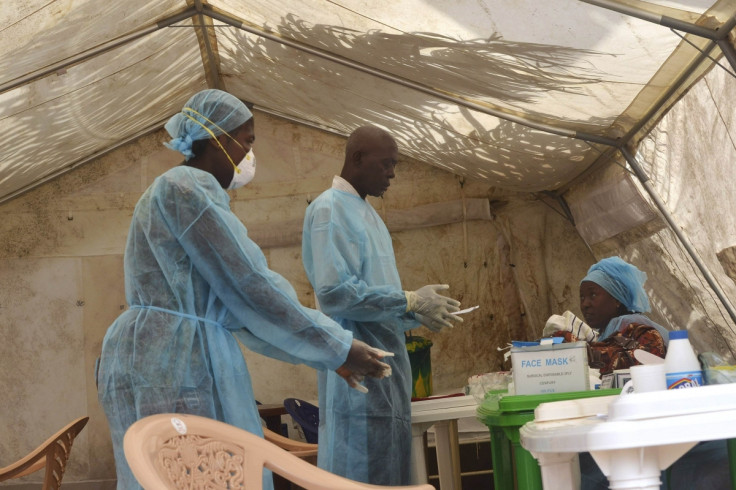Ebola Virus Could Spread Worldwide, Experts Warn

The deadly virus of Ebola could spread worldwide, experts have warned.
The revelation came as infected Liberian passenger Patrick Sawyer brought the virus into Nigeria on a flight to Lagos on 20 July, spreading to the fourth African country. Sawyer died in a Nigerian hospital five days later.
The virus, which first spread in Liberia in January, has also hit Sierra Leone, Guinea and now Nigeria.
Experts fear that the other passengers who flew with Sawyer and might have contracted Ebola, could now spread it around the world.
Professor Hugh Pennington, emeritus professor of bacteriology at the University of Aberdeen, told the Daily Mail: "If the disease gets going in Nigeria, it would be cause for concern.
"Nigeria has close links with the UK and many other countries."
International airports in Nigeria are now screening passengers arriving from foreign countries for symptoms of Ebola. However, experts have said this might be fruitless because the virus cannot be diagnosed immediately, as it has an incubation period of between two to 21 days.
The news of Sawyer's death came just days after a top Ebola doctor in Sierra Leone, Sheik Umar Khan, died after contracting the virus.
In Liberia, high-profile doctor Samuel Brisbane also died of Ebola. Kent Brantly, an American doctor from Texas, became infected after he had moved to the country to help contain the virus. He is now being treated and believed to be stable.
The outbreak, which is the deadliest in recorded history, has killed at least 672 people in West Africa since January. Another 1,200 are believed to have been infected.
Liberia announced on Monday it had closed most of its border crossings, in a bid to curb the virus.
Humanitarian organisation Doctors Without Borders (MSF) - which has deployed some 300 staff in West Africa to treat patients affected by Ebola - warned the outbreak is out of control and curbing it will require "a massive deployment of resources by governments in West Africa and aid organisations".
"We have reached our limits," said Dr Bart Janssens, MSF director of operations. "Despite the human resources and equipment deployed by MSF in the three affected countries, we are no longer able to send teams to the new outbreak sites."
A cure for the deadly virus is yet to be found.
© Copyright IBTimes 2025. All rights reserved.





















